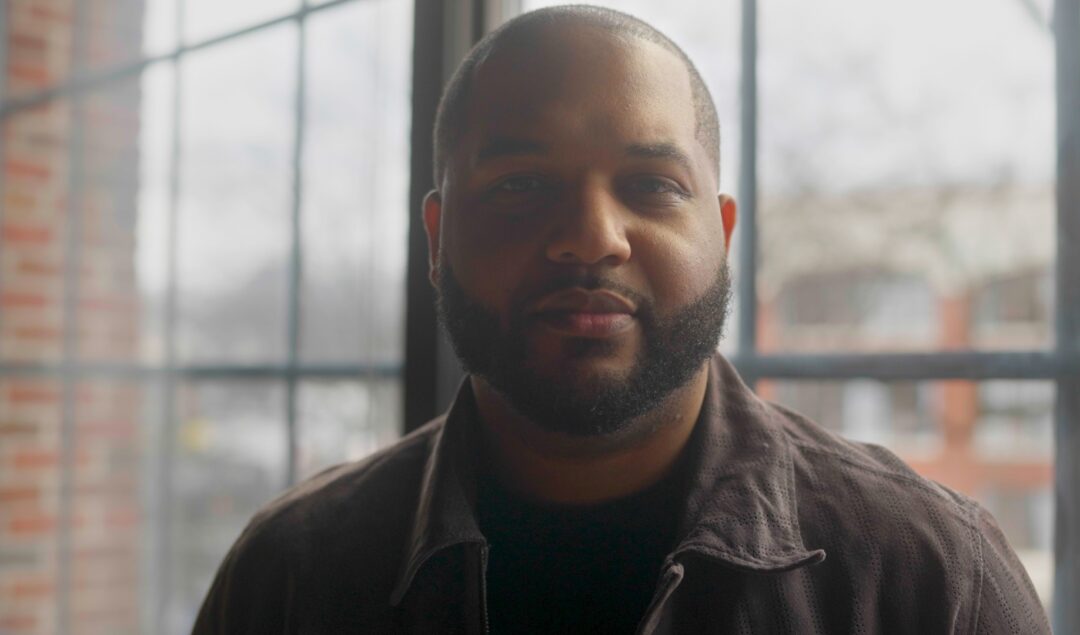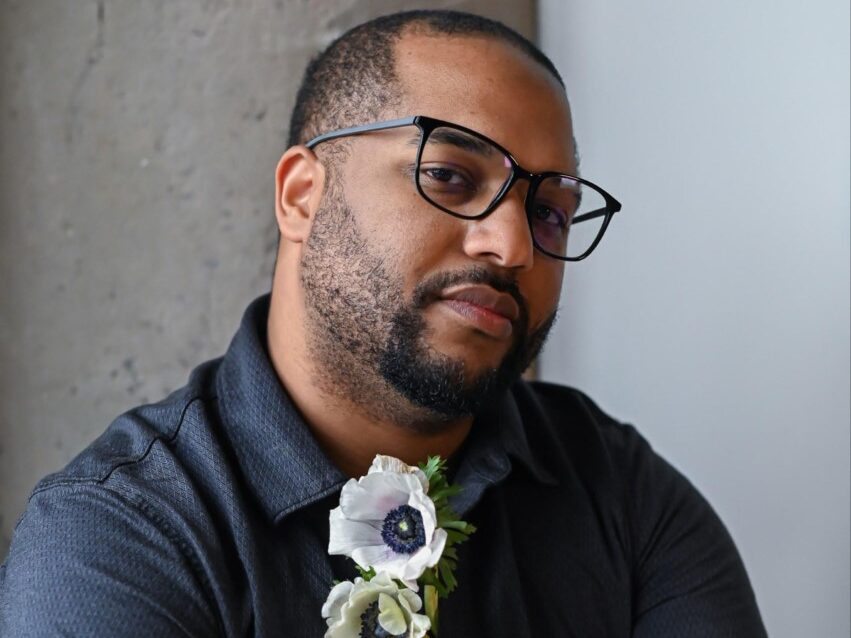Interview: Musician-Turned-QA Engineer Matt Castilla On His Unconventional Path To Intuit Mailchimp

Intuit is hiring on POCIT.
Matthew “Matt” Castilla is a senior software quality assurance (QA) engineer at Intuit Mailchimp. Although he has had an unconventional entrance into the world of tech, Matt has carved his unique path to success. In this interview, Matt tells us how he went from an accomplished musician to a thriving career in tech.
Tell me about your career trajectory and your journey to Mailchimp.
I grew up in a musical household—both of my parents were musicians. They were also professors at historically Black colleges and universities (HBCUs) and taught at every level. I ended up going to Berklee College of Music in Boston, MA, majoring in Film Scoring. I then went on to Tufts University, where I earned my master’s in Ethnomusicology. I was struggling to make ends meet. My father connected me with a colleague of his at Apple, who ended up recommending me for a job. While multitasking as a professional musician, grad student, and Apple employee, my father, unfortunately, passed away. Two months later, my mother was unfortunately diagnosed with breast cancer.
As my career progressed at Apple, several of my colleagues in Atlanta were leaving and going to work at Mailchimp, a company they saw as making an impact in Atlanta for people’s career movement, and they encouraged me to do the same. I applied for the role of Tech Support and thought to myself, am I taking a step back in my career? When I started, I learned very quickly that it was not your average tech support. I ended up learning JSON, API, and all these different concepts. I started absorbing knowledge and took every opportunity to learn.
“One of the most rewarding things about working at Mailchimp is that they have let me find my journey. The environment is very healthy, and I can ask questions without judgment.”
As I progressed in my career, I learned more about the science and process of testing. I immersed myself in it and loved finding issues and solving them. The trajectory is not a classic way of studying software engineering, but in hindsight, the skills I learned were invaluable and helped me to get where I am today. One of the most rewarding things about working at Mailchimp is that they have let me find my journey. The environment is very healthy, and I can ask questions without judgment.
What kind of support did you find valuable in advancing your career?
My brother, Isaiah, was a big support when it came to me doubting my understanding of tech and encouraging me to keep going. My wife, Tahari, also supported me by saying, “Whatever you say you want to do, you’ll do it.” Mailchimp also supported me by allowing me to make an impact from an employee resource group (ERG) standpoint with our Black ERG, Hues. I’ve been fortunate enough to lead as head of commerce for Hues.
“I didn’t know what an ERG was or that it was an option for me.”
This has led to building the ERG’s first website, building out a space for cultural discussions, creating a page to highlight the talents of ERG members, collaborating on creating swag and events, and even advising others in career-related decisions that have led, in some cases, to promotions. That was a really important moment for me in my heart. As someone from Mississippi, I know how important support and community are due to seeing firsthand the racial wealth gap that is present.
What’s your experience of being a person of color in tech?
Starting out at Apple, I saw firsthand some of the limitations that come with large companies when trying to develop an idea of fairness and equality. I didn’t know what an ERG was or that it was an option for me. At Mailchimp, I was one of the founding members that helped start our ERG. They gave us the flexibility to develop it how we wanted and needed as it was new to us all.
Because of my background and growing up in the south, I don’t get fearful of having tough conversations with leadership teams. I’ll talk with them about what we’re doing well and what we could put more emphasis on, such as having people of color and people who reflect what Atlanta looks like, represented in leadership positions.

Mailchimp has been extremely receptive and open to this conversation and making steps toward change. For example, helping plan a trip to AFROTECH where we sent 150 employees to Austin for the conference, was a very rewarding experience as we also volunteered and gave back to the community. This is significant to me as someone who has moved up in my career at Mailchimp as a QA engineer; I still get to do other things that are important to me that are not necessarily in my remit as an engineer.
What are your tips for POC getting into the tech industry?
The biggest one is, don’t get discouraged by getting no’s. I’ve applied to hundreds of jobs before. I know what it’s like to go through tons of interviews, and you sometimes get the offer, but you realize it’s not right, and you have to say no. Also, be open to learning from an entry standpoint and put yourself out there. It’s important to be consistent and constantly make sure you connect with the resources available to you, such as the different recruiters in the industry.
Take the time to give yourself grace. People are really hard on themselves. I’m hard on myself too, but we sometimes forget that we’re all people and there is light to gain at the end of the tunnel. Your next opportunity could be with a startup; it could be building your portfolio up with freelance work; it could be many different avenues to get into tech.
Who in your life has inspired you and why?
My paternal grandfather, Willenham Castilla, was a civil rights icon in Mississippi. He owned a farm and worked his way up the postal system, becoming one of the first Black supervisors in the state and overseeing one of its largest outposts. He was “the first Black” in a lot of ways. Two years after the Civil Rights Voting Act of 1965 passed, he used his promotion to register Black voters who had been disenfranchised by the poll tax. As a WWII veteran, he was treated poorly on returning home from serving overseas as a military engineer. Unfortunately, he passed away last year, but he would have told you that he dedicated his life to helping Black people.
“My grandfather would often tell us to speak on the good; even if it is difficult to say.”
My grandfather’s determination and approach to being an agent of change, as well as a resource, taught me the importance of spiritual, emotional, and mental grounding. In following his blueprint in my day to day, I hope to be even a sliver of the agent for change that he was, showing up for those who often have their voices silenced. To maximize my impact, I study the strategies of civil rights heroes like my grandfather. This means knowing how to approach leadership and advocate for the passion projects that would uplift the community, building trust, and speaking up when needs are not being met. My grandfather would often tell us to speak on the good; even if it is difficult to say, still push through and speak on those things. You never know who you’ll reach if you continue to do just that.
What are other things you’d like to add?
Intuit has a global presence; therefore, its Diversity, Equity, Inclusion, and Belonging (DEIB) work spreads across the globe. We are committed to community movement and impact through our various volunteering opportunities, such as working with the youth, including sponsoring people so that they can go to tech conferences. We also have a relationship with Clayton State University, where we teach student sessions about functionalities in these tech environments and what’s needed to thrive.
We are no strangers to helping our community. Just recently, we volunteered at the “Grocery Spot” in Atlanta, which provides free groceries for anyone in need. We have a strong impact within our ERG, where we make recommendations for job roles, encourage people not to be fearful when applying, and work to ensure that our job descriptions are accessible.
Learn more about careers at Intuit by joining our Talent Community.



